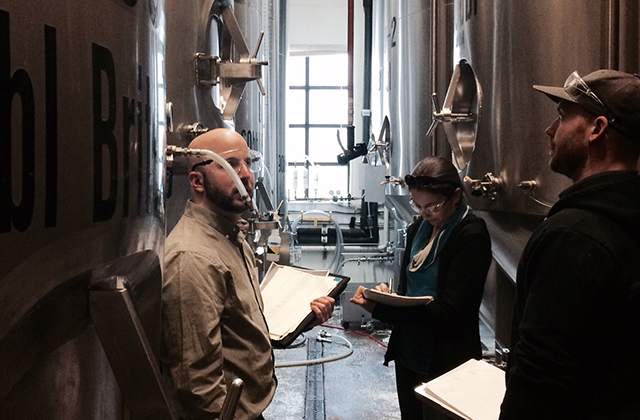
A new program implemented in part by the Montana Department of Environmental Quality has six craft breweries getting a leg up in sustainability and cost-effectiveness.
The Brewery Sustainability Implementation Pilot program has been launched to work with some of the state’s 60 craft breweries in helping identify energy, water, and raw material flows in the production process and design custom work plans addressing behavior changes, cost-effective actions and increased energy and water monitoring to sustainably reduce production inefficiencies.
“The Montana Manufacturing Center, one of the collaborators behind the Pilot, wants to move from a pilot to an actual service provided to all breweries,” said Chris Hergett, the process engineer and a Pilot leader.
Meadowlark Brewing in Sidney, Neptune’s Brewery in Livingston, Philipsburg Brewing in Phillipsburg, Great Burn Brewing and KettleHouse Brewing in Missoula, and 406 Brewing in Bozeman are the six breweries participating in the Pilot.
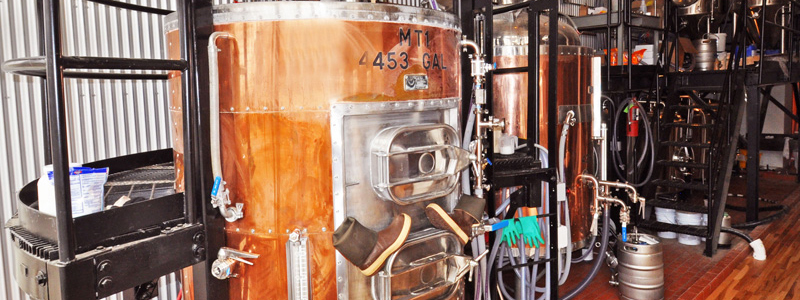
In an industry where economic success is inherently bound to social capital, the Brewery Sustainability Pilot highlights the potential for craft breweries to play a role in transforming community perceptions about sustainability and local development. Once proven as a cost-effective optimization process and expanded into a state-wide service, the program could function as a market transformation tool, standardizing behavioral & operational changes in a majority of Montana brewpubs.
The Brewery Sustainability Pilot is a collaborative effort between UnCommon Sense, Montana State University’s Montana Manufacturing Extension Center (MMEC), and the Montana DEQ.
Heather Higinbotham, the powerhouse behind the sustainable business operations training and leadership program for UnCommon Sense, and Hergett make up the Pilot’s core leadership.
Craft breweries are fast becoming big business in the U.S. by using branding imagery and nomenclature to evoke local geographies and cultivate their connection to distinct local identities.
Montana’s craft breweries actively present regional names such as 406 Brewing, Philipsburg Brewing, Bitterroot Brewing, and Lewis & Clark Brewing. The Neptune Brewery Co.’s “River Nymph Golden Ale” is recommended as a refreshing beverage on Livingston’s nearby rivers; Meadowlark Brewing Co.’s “Badlands Extra Pale” is an homage to “Sidney Montana…where the Badlands meet the Plains.” These and others allude to an identity based in regionally and locally significant geographies.
In addition to cultivating an atmosphere and space for socialization, craft breweries are also well known as enthusiastic participants in local community events. It’s reported that nearly 90 percent of urban craft breweries and all six participants in the Pilot host community pint-night fundraisers for local charities and causes, feature local entertainers or sponsor local events.
“Half the people at a town meeting said they get information about what is happening in town at the Brewery,” said Nolan Smith, the owner of Phillipsburg Brewing. He acknowledged the brewhouse’s value in facilitating community information exchange.
A brewery rooted to local identity, space, and cultural life undoubtedly translates to social capital that can inspire interest and positive perceptions of sustainability. This is especially the case in Montana, given its number of geographically and historically distinct small towns and communities.
“Sidney is a close-knit community that looks out for itself and I wanted to build a business that could stand the test of time and didn’t rely on oil,” said Travis Peterson, owner of Meadowlark Brewing.
Sidney is an Eastern Montana town of roughly 5,000 that experienced exponential population growth and enjoyed economic prosperity as part of the shale oil boom in the Bakken region between Northeast Montana and Northwest North Dakota. Peterson noticed a shifting local mindset since Meadowlark’s arrival.
“The grocery stores in town devote more space to craft beers now,” he said.
He believes that this also signals a change in perception about local sourcing, adding that the brewery is proud of its focus on using regionally-sourced ingredients.
“I think that craft beer is on the same wavelength of a farmer’s market. It’s made in our backyard — the community likes the locality of it,” Peterson added.
Meadowlark’s effect on the local market alludes to the potential for breweries to shape attitudes around local sourcing and potentially other sustainability issues including energy efficiency, waste reduction and resource conservation in these small communities. Though 66 percent of urban craft breweries market their sustainability efforts, aside from brewery tours, few of the participating breweries in the Pilot explicitly communicate their sustainability efforts to the community.
“We speak to our sustainability efforts and of the Pilot program whenever we get a chance or are giving tours,” Smith said about Phillipsburg Brewing, “We will continue to promote it, especially when we can measure our performance over time.”
Locally centralized changes in attitudes is especially significant in a state that is a veritable mosaic of small mountain towns sometimes hundreds of miles apart. Awareness and receptivity in small communities to energy efficient and sustainable manufacturing adopted by beloved brewpubs may contribute to market transformation efforts in the face of an energy market trending away from traditional coal to renewables and energy efficiency.
“This is a great opportunity for breweries in Montana to set precedence for creating sustainability programs in our industry and show the importance of embracing it into our bottom line,” said Eddie Wooldridge, the sustainability director at KettleHouse Brewing. “It is a big step forward showing other Montana breweries how we care about the environment and our impact we have on our communities.”
Kamene Ogidi is an Energy Educator at the Montana Department of Environmental Quality through the Energy Corps program hosted by the National Center for Appropriate Technology. She works with the State Energy office on program outreach and communicating the Agency’s work funding renewable energy and energy efficiency projects throughout the state.
Photos courtesy Philipsburg Brewing Co. & the Montana DEQ

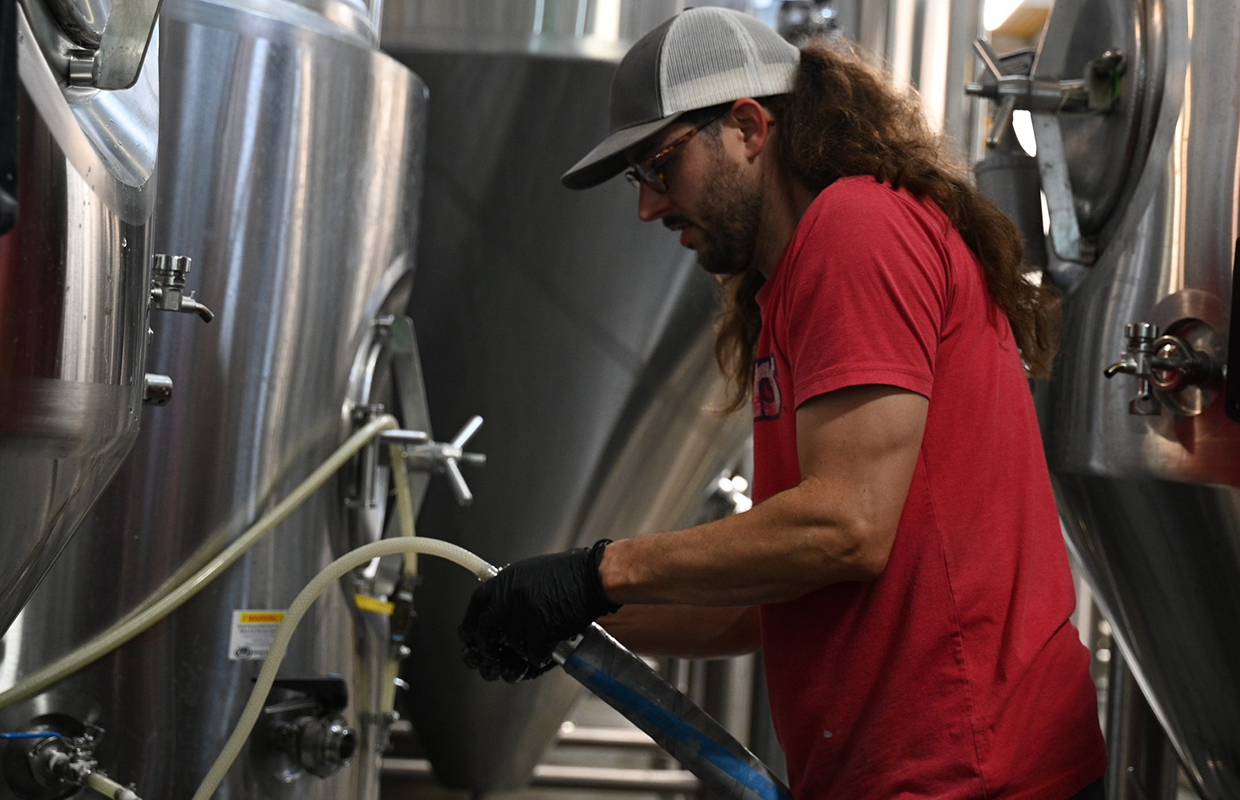
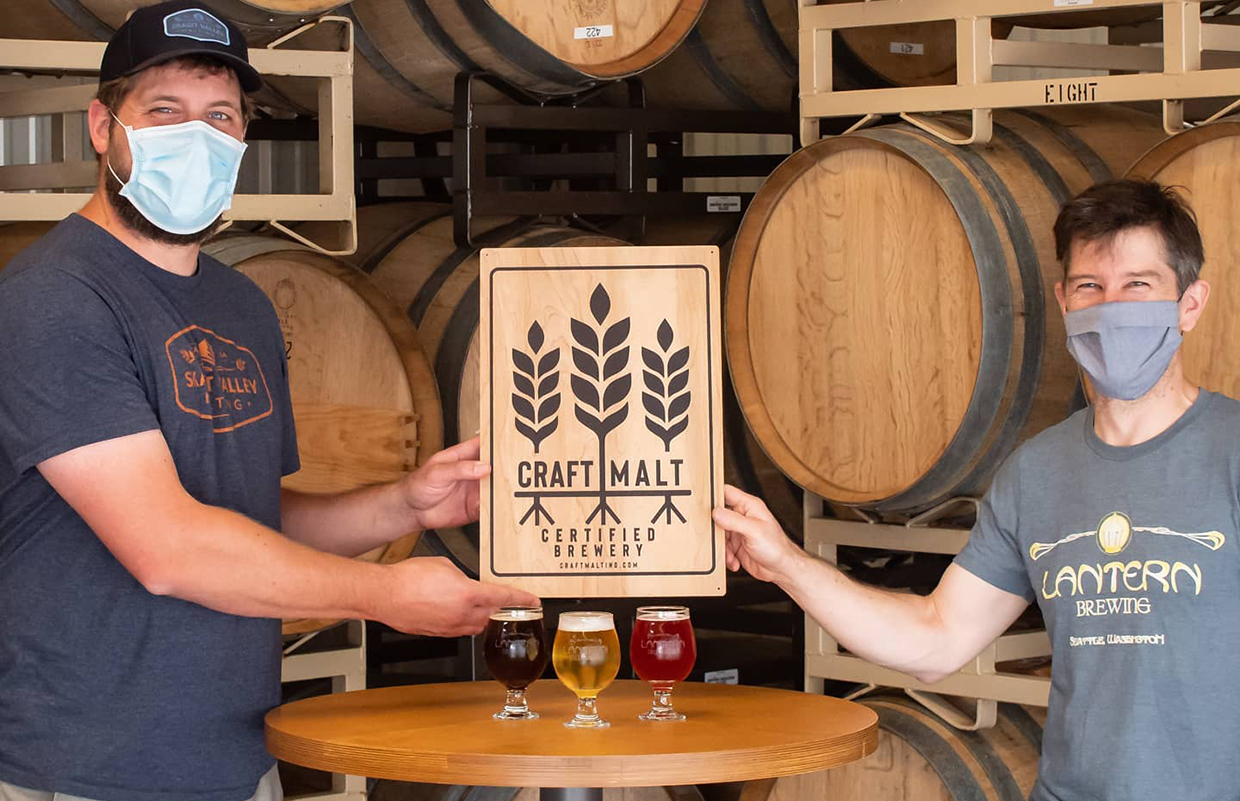
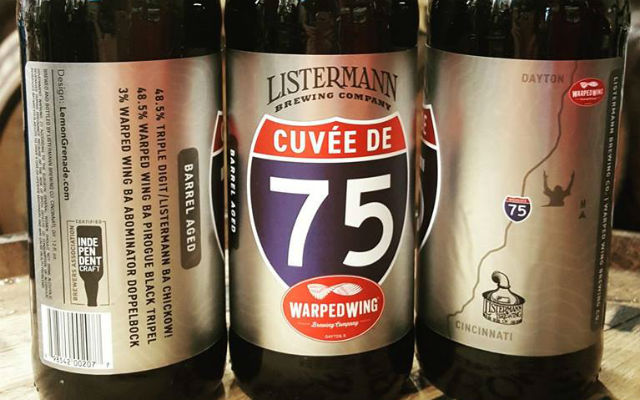
1 Trackback / Pingback